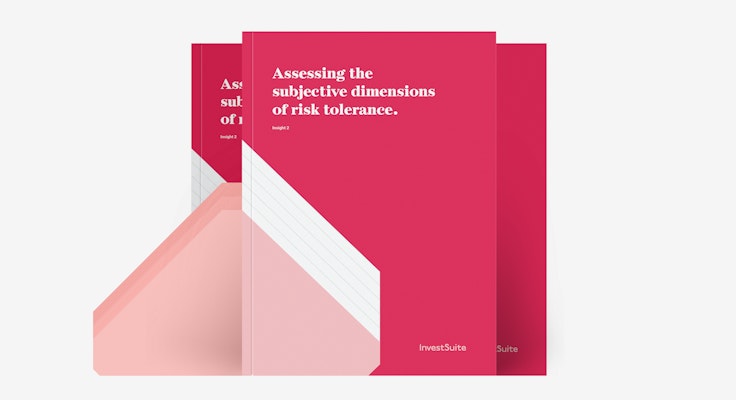As the wealth management industry enters a pivotal moment of digital transformation, firms are being challenged to evolve faster than ever before. From rising client expectations to evolving regulatory demands and emerging technologies like AI and tokenization, the future of wealth management hinges on adaptability, personalization, and scalable innovation.
In 2025, being a successful player in the industry requires more than traditional portfolio management. Today’s financial advisors, private banks, and wealth managers must embrace client-first, tech-powered strategies or risk being left behind. Based on reports from leading consultancies like Deloitte, McKinsey, and Capgemini, here are the top trends shaping the wealthtech and wealth management landscape this year—and how companies like InvestSuite are leading the way.
1. Hyper-Personalization Through Data and AI
The days of generic financial advice are gone. In 2025, clients demand highly personalized investment strategies, tailored to their goals, risk appetite, and life stages. Artificial intelligence and advanced analytics are at the core of this transformation, enabling scalable personalization in real time.
According to Capgemini, 72% of high-net-worth individuals (HNWIs) now expect personalized products and services. AI enables wealth managers to analyze behaviors, generate insights, and adjust portfolios dynamically—enhancing both performance and engagement.
2. Digital Transformation Is the Norm
What was once a differentiator is now the standard. Digital-native platforms, robo-advisors, cloud infrastructure, and seamless onboarding have become foundational components of any successful wealth management offering.
McKinsey forecasts that WealthTech AUM (assets under management) in Asia-Pacific alone could triple or even quadruple by 2027. Firms investing in modern, user-centric interfaces and backend automation are not only enhancing the client experience but also gaining operational efficiency and driving revenue growth.
3. Operational Resilience and Regulatory Compliance
In a complex regulatory environment, resilience is no longer optional. Regulations such as the EU’s Digital Operational Resilience Act (DORA) are pushing firms to upgrade their compliance, disaster recovery, and cybersecurity protocols.
A Deloitte survey shows that 64% of European financial institutions now rank operational resilience as their top strategic priority. Wealth managers are increasingly turning to technology to meet evolving compliance needs while maintaining uninterrupted service and protecting client data.
4. Democratization of Private Markets
Once reserved for institutional investors, private markets are opening up to a broader client base through digitization. New platforms are lowering entry barriers to private equity, real estate, and alternative assets.
McKinsey sees growing demand, especially in the Asia-Pacific region, for digital access to private market opportunities. This democratization will continue to grow, enabling wealth managers to offer broader, more diverse portfolios to retail clients.
5. Fee Compression and New Pricing Models
Robo-advisors and self-directed platforms are disrupting traditional fee structures. In response, firms are adopting transparent, flexible pricing models—such as subscriptions or tiered services based on portfolio complexity.
Transparency and demonstrable value are critical for client retention and growth, as customers increasingly scrutinize cost-to-value ratios in investment services.
6. Intergenerational Wealth Transfer
As Baby Boomers pass down trillions in assets to Millennials and Gen Z, firms must cater to digital-native expectations. Estate planning, tax strategies, and digital communication will be central to retaining these younger clients.
Building trust with new generations requires user-friendly platforms, ESG-focused products, and engaging, educational client communication.
7. ESG Integration and Sustainability
Environmental, Social, and Governance (ESG) investing continues its rise, fueled by both regulatory pressure and client demand. Investors want portfolios that reflect their values—backed by reliable, real-time data.
Wealth managers are using AI-powered ESG tools to offer transparent reporting and integrate sustainability into the core of their offerings. ESG is no longer optional—it’s essential.
How InvestSuite Is Powering the Future of WealthTech
At InvestSuite, we’re at the forefront of this transformation. Our mission is to democratize digital wealth management and make investing more human, intuitive, and insightful.
Our StoryTeller product redefines portfolio reporting by turning dry data into personalized narratives that clients can truly understand. Whether you're an advisor or a private bank, StoryTeller strengthens trust, improves transparency, and enhances client communication.
Robo Advisor delivers hyper-personalized, goal-based portfolios at scale, helping institutions serve clients cost-effectively without compromising quality or compliance.
Self Investor, our white-label execution-only platform, empowers clients to manage their investments confidently through intuitive tools and real-time insights.
Each of these solutions is modular, cloud-native, and API-powered, designed to help financial institutions thrive in a fast-moving market and future-proof their wealth management offerings.
Conclusion
Wealth management in 2025 goes beyond managing assets, it's about delivering meaningful, tech-powered client experiences. As the landscape evolves with AI, ESG, personalization, and regulatory shifts, firms must adapt or risk falling behind.
InvestSuite’s digital wealth management solutions offer a proven, scalable path forward. If you’re ready to elevate your digital strategy and meet the demands of tomorrow’s investors, we’d love to talk.
If you’re interested in elevating your wealth management offering, get in touch with our team.
https://www.capgemini.com/insights/research-library/world-wealth-report/
https://www.mckinsey.com/industries/private-capital/our-insights/global-private-markets-report
https://www.pwmnet.com/smoothing-the-68tn-great-wealth-transfer






